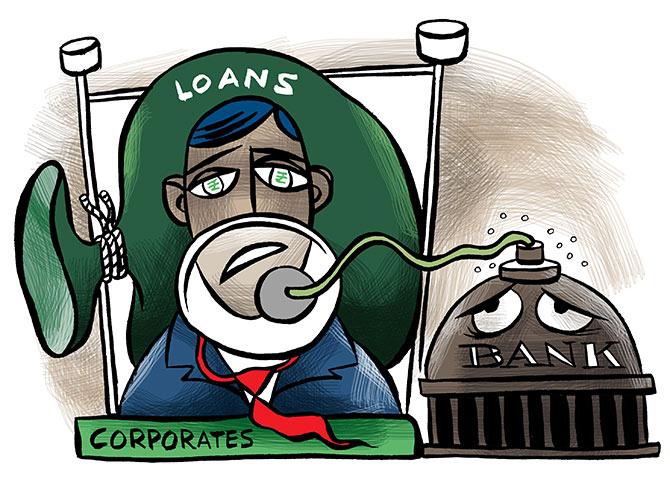Bankers said they are looking outside the bankruptcy courts and will be able to resolve a few debts in the power sector before January-end.

Banks might have to make an additional 20 per cent provisioning in the March 2020 quarter if bad debts are not resolved after the deadline to restructure such debts under the Reserve Bank of India’s June 7 circular expired on Tuesday.
Bankers said they are looking outside the bankruptcy courts and will be able to resolve a few debts in the power sector before January-end.
In such a case, they will not have to make provisions this quarter.
Banks have also asked for additional time from the regulator to resolve the pile of bad debt as they have an exposure of Rs 2.2 trillion.
Of this, India’s largest public sector bank State Bank of India’s exposure is estimated at Rs 57,000 crore, and the rest is shared among other banks.
A top SBI official said according to RBI norms, lenders will have to only make an additional 20 per cent provision, which can be written back on implementation of the resolution plan.
“What we have to focus on now is for how many cases we have a viable resolution plan.
"For these cases, the lenders can hold inter-creditor agreement (ICA) and make 20 per cent provisioning if the plan is not implemented before March 2020,” said a top SBI official on Tuesday.
Some major cases are already before the National Company Law Tribunal - including IL&FS and Dewan Housing Finance (DHFL).
In some cases in the power sector - like RattanIndia Power, Prayagraj Power, and Avantha's Jhabua Power - lenders will manage to resolve before end of January, the SBI official said.
The official added that banks need at least 9-10 months to resolve a bad debt account - considering the fact that many stakeholders are involved, which is why they demanded more time.
In its circular, the RBI had given a 210-day period to complete the resolution process.
If banks cannot meet the timeline, they have to either send the company to bankruptcy court, or make a 20 per cent additional provision and pursue resolution outside of the Insolvency and Bankruptcy Code (IBC).
On an average, banks are recovering less than 50 per cent of their exposure through bankruptcy courts and that, too, after prolonged litigation.
Hence, banks are trying to find a debt resolution plan outside courts.
This, however, has to be vetted by a ratings agency so that there is clarity on the cash flow of the company.
Corporate lawyers said banks have to comply with stringent provisioning in their books if there is no resolution.
“Cases where the resolution involves restructuring or change in ownership outside IBC, the additional provisions may be reversed upon implementation of the resolution professional,” said Nirav Shah, Partner, DSK legal.
In cases where resolution is pursued under the insolvency code, half the additional provisions made may be reversed on filing of insolvency application and the remaining may be reversed upon admission of the borrower into the insolvency resolution process under IBC.
In cases where assignment of debt or recovery proceedings is initiated, additional provisions may be reversed upon completion of that process, Shah added.
With inputs from Subrata Panda











